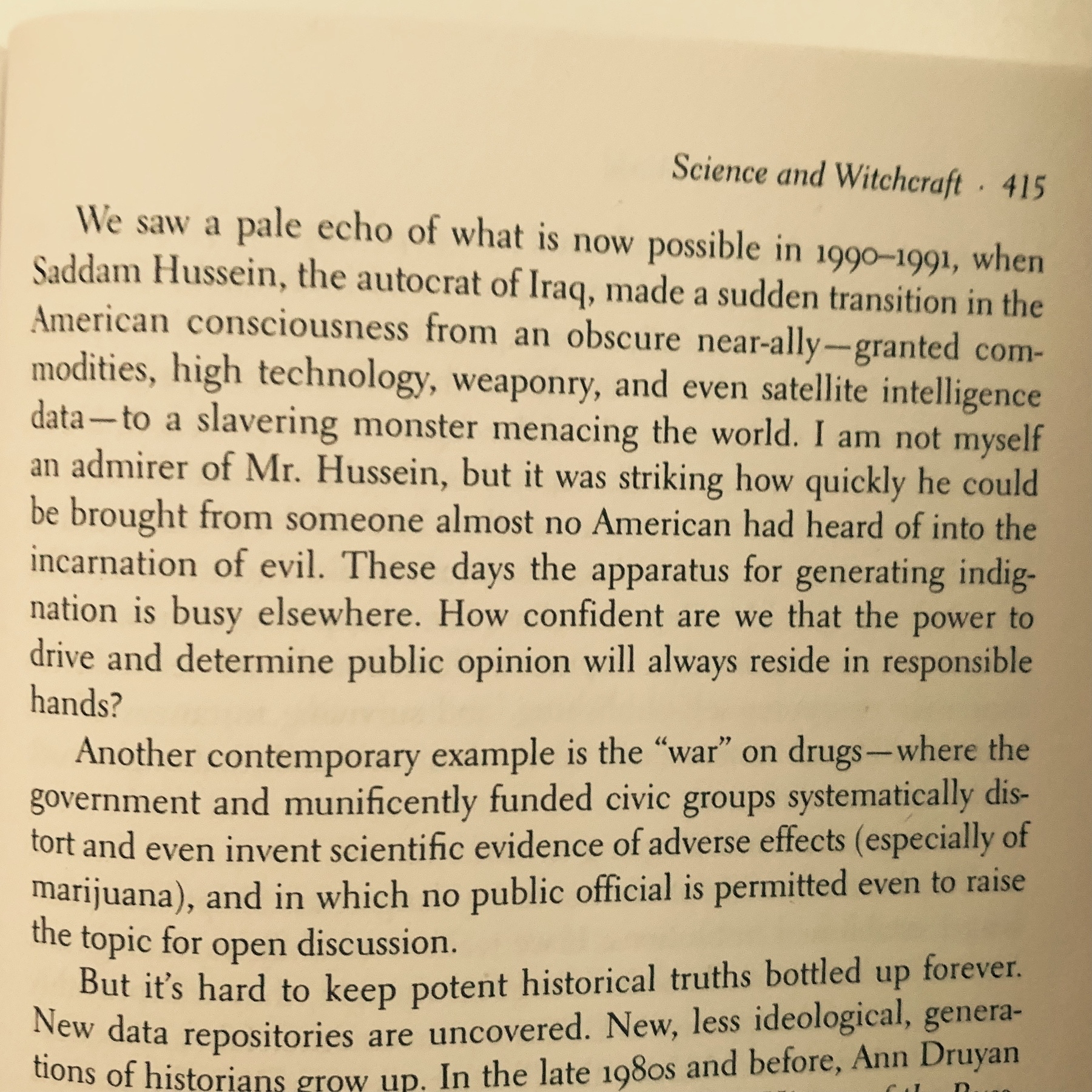📚 Social networks aren’t the problem, ignorance is. Carl Sagan called it 30 years ago. So if you are annoyed by Twitter’s overall tone maybe schools are more to blame than we admit, on all sides and at all levels of education?
The Demon-Haunted World
How times change. What in the 1990s was fluff about the importance of learning, thinking, free speech, and civility for America’s continued progress now bounces between prophetic and controversial.
Of course, it wasn’t fluff. It was as true then as it is now, only this time there is no background hum of optimism to drown out the warning sirens. The country, subsumed by ignorance left, right and center — each stupid in their own way — went from being haunted by Demons to being run by them. We are living through Carl Sagan’s nightmare, brains turned off, phones in hand, fingers at the ready. So it goes.
📚 Five months into the year, and I’ve abandoned my first book: The Ministry for the Future. Broad strokes and cipher characters à la Three Body Problem just didn’t go well with the specific issues The Ministry… was trying to raise.
📚 Starting the morning with some Gerd Gigerenzer. Hope he doesn’t get into trouble for implying the media and health agencies are spreading disinformation.
Oh, who am I kidding? It’s in a book, no one will see it.
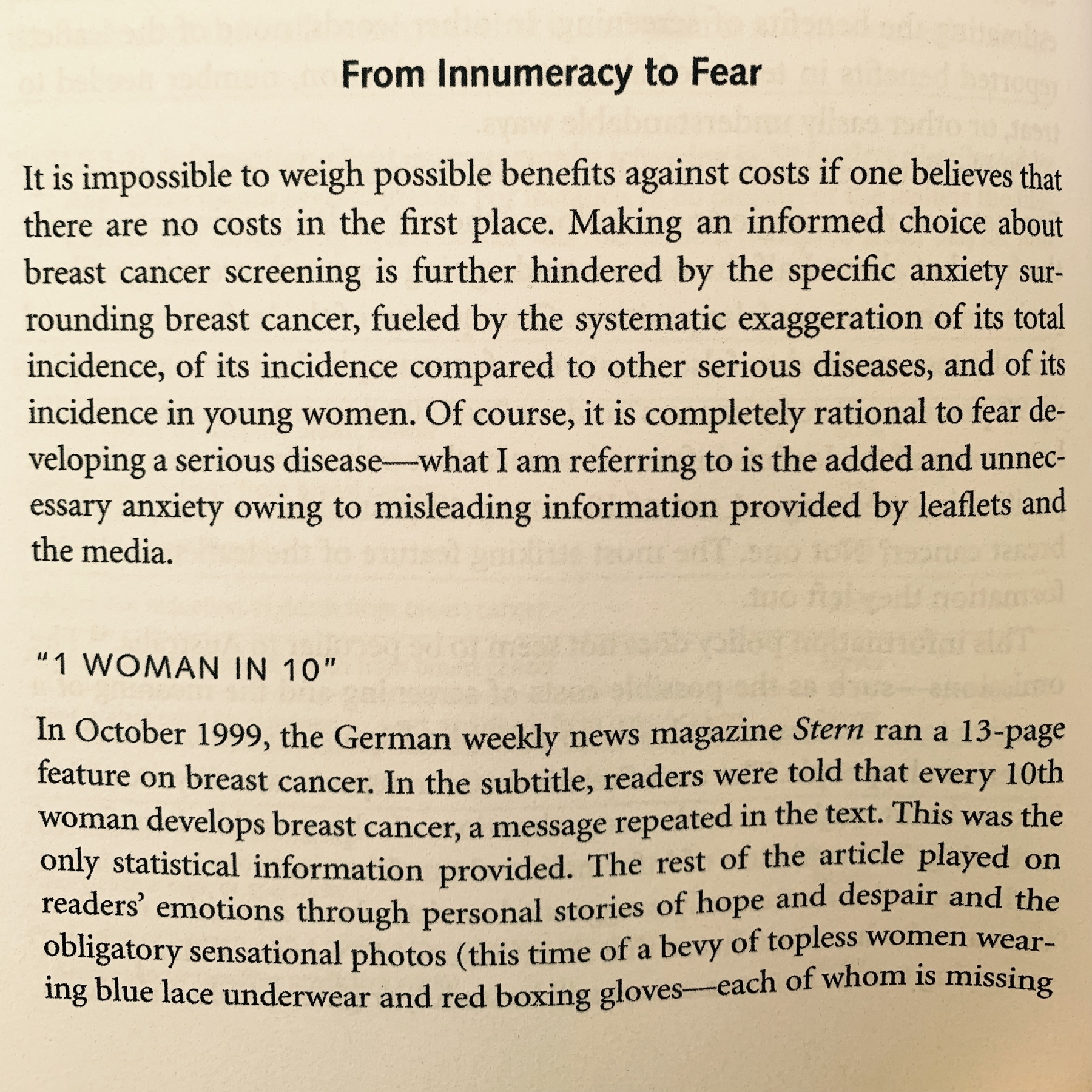
From David Graeber’s uneven but in parts excellent book BS Jobs. This was my own conclusion after watching that CGP Gray video on AI taking over all the jobs some years back 📚
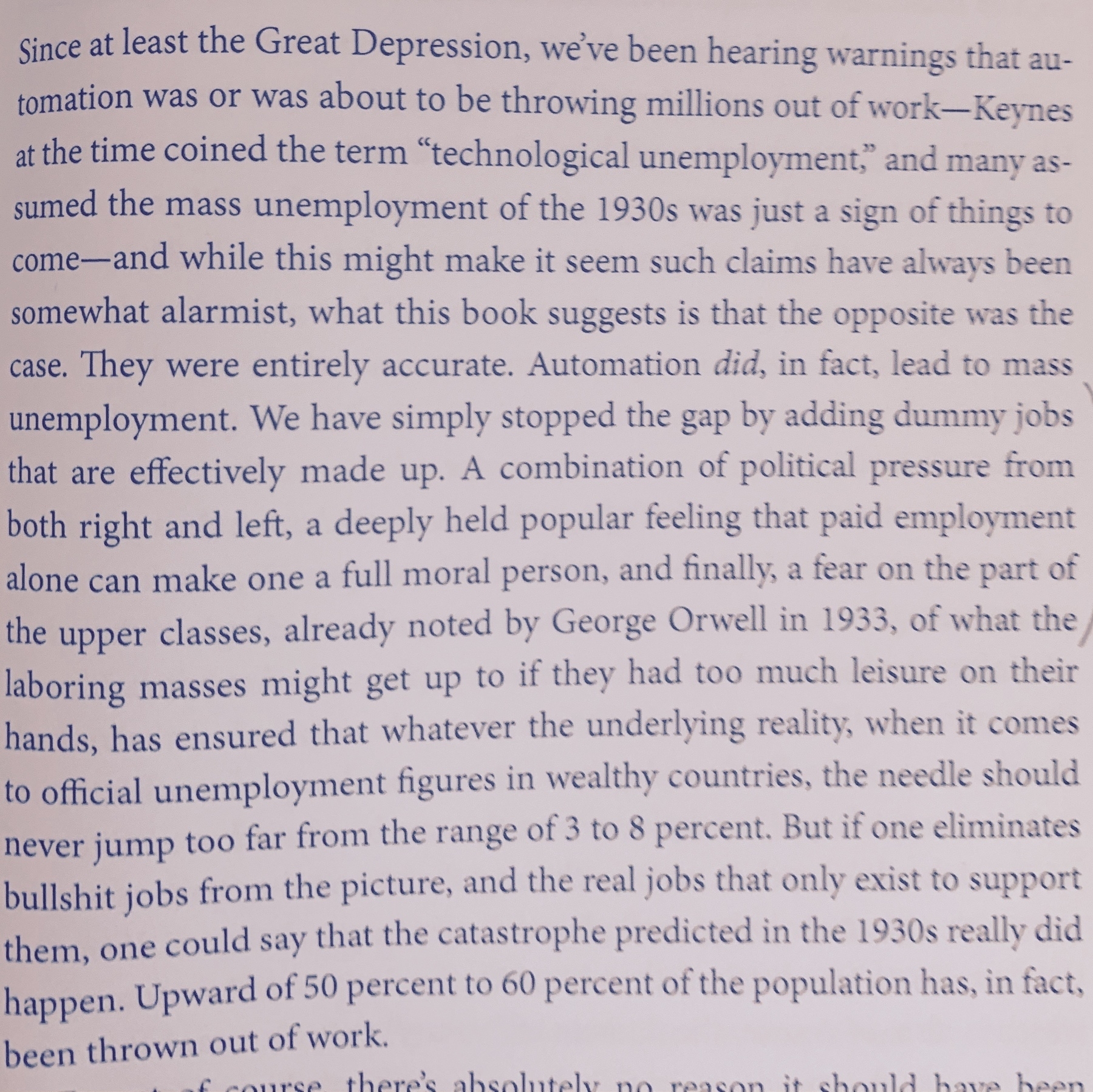
Review: Understanding Nonlinear Dynamics 📚 Thought I’d be too old for textbooks, but here we are…
Understanding Nonlinear Dynamics
It is a good thing for intellectual humility — particularly in middle age into which yours truly has stepped a few years ago What constitutes “middle age” in the 2020s is a matter of some debate. Is it a matter of birth date, life style, state of mind, a combination thereof? Taking the last thing first: I have been in a middle age state of mind since I was twelve; am as much of a 2.5-child nuclear family man as a geriatric millennial can be; and am well into the third quintile of life, as foretold by the life expectancy tables for a man of my age. No red convertibles planned for purchase, though a new decked-out Mac Pro — once it comes out — would probably cost just as much and is something I would actually consider having. — to open an undergraduate textbook for a field that is just outside one’s area of expertise. A series of reviews on gene regulatory networks led me down a rabbit hole of vector fields and attractor states that was interesting-yet-unscrutable enough to get me to Understanding Nonlinear Dynamics.
It is very much a textbook, info-boxes, end-of-chapter exercise, and all. It also presupposes a grasp of mathematics which I may have had just out of high school but have long since lost. This is fine: at Mortimer Adler’s suggestion I zipped past the equations and derivations, deciding to trust the authors that they are indeed correct, and went to the meat. Which, in nonlinear dynamics, as a nice bonus, also has pretty pictures of fractals and vector fields. Alas, not as artistic as Charles Waddington’s, but nevertheless striking.
What surprised me the most was how much of the field resulted from mathematicians fiddling around with parameters to see what happens. Going to a textbook to learn this was overkill — the Wikipedia article on experimental mathematics may serve the purpose just as well — but knowing the context does make it memorable. There is a pleasing symmetry here: mathematics is usually thought of as purely theoretical, yet its most interesting aspects, Lorenz attractors to Wolfram’s (not so) “new kind of science”, have relied on experimentation. Biology has been purely experimental ever since Watson and Crick, aborted attempts at theoretical biology notwithstanding, and was even a decade ago producing more data than it can handle. Would it not be neat if the answer to this biological data overload wasn’t machine learning but instead a framework for theoretical biology? If there was one, nonlinear dynamics would play a big part.
Ann Druyan wrote the last paragraph of The Demon-Haunted World (1997). Hate to say it, but darkness is winning 📚
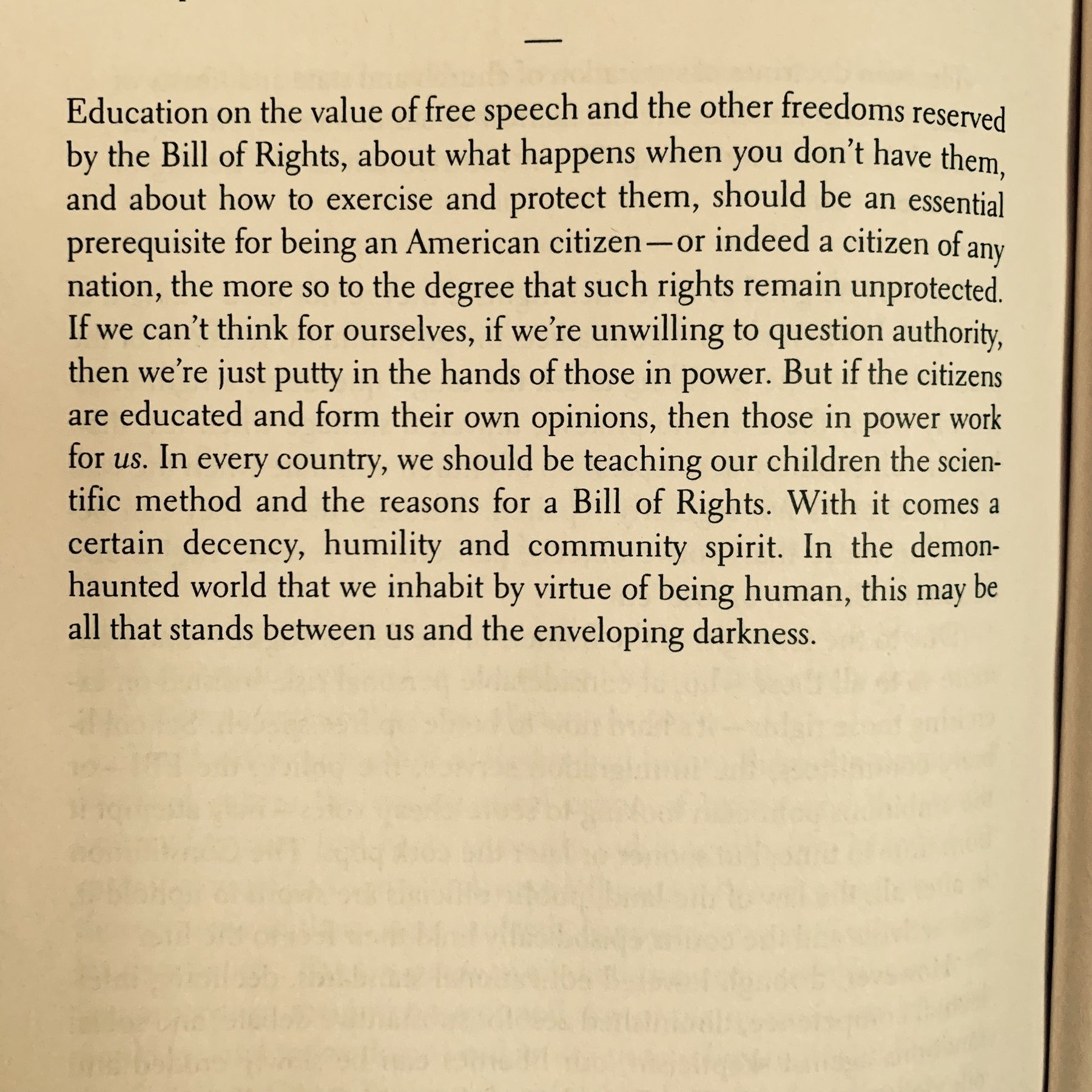
Ann Druyan on localism. Timeless 📚
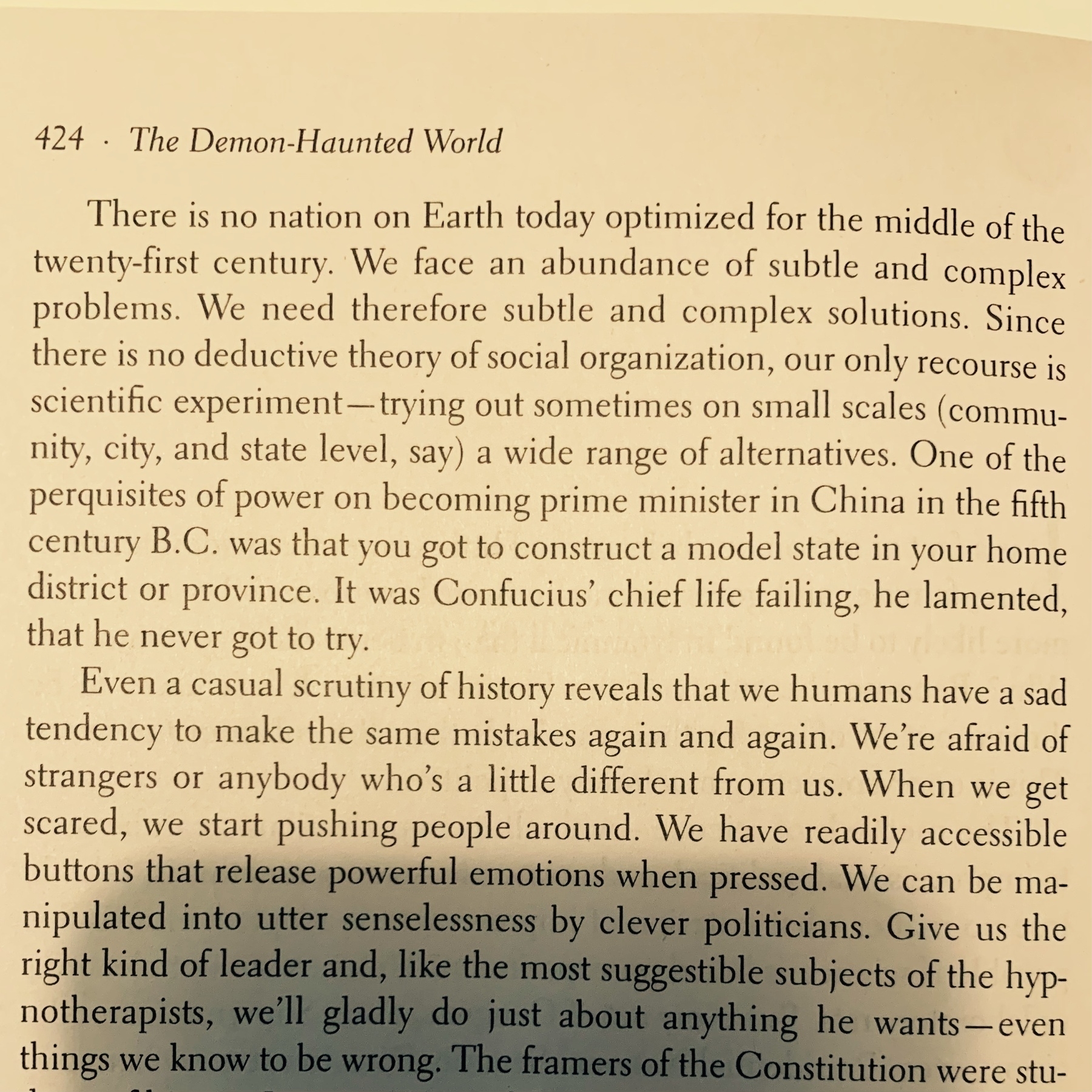
This whole chapter is striking, particularly when you consider all that came after (the book was first published in March ‘97) 📚
